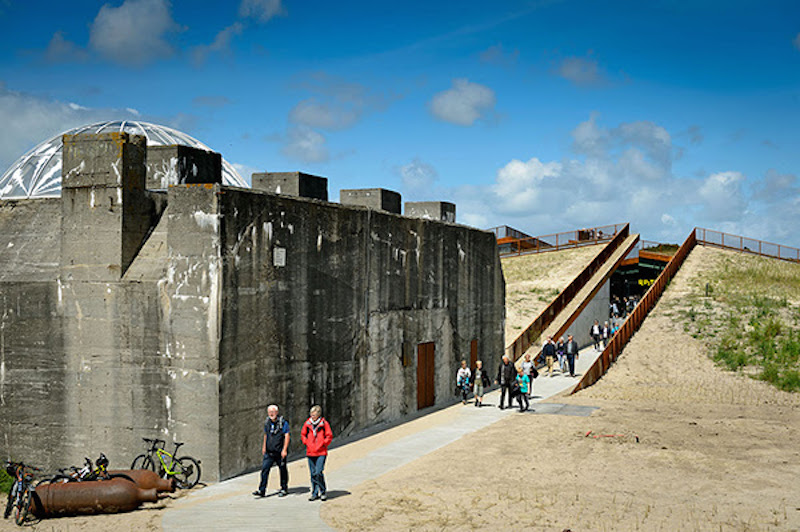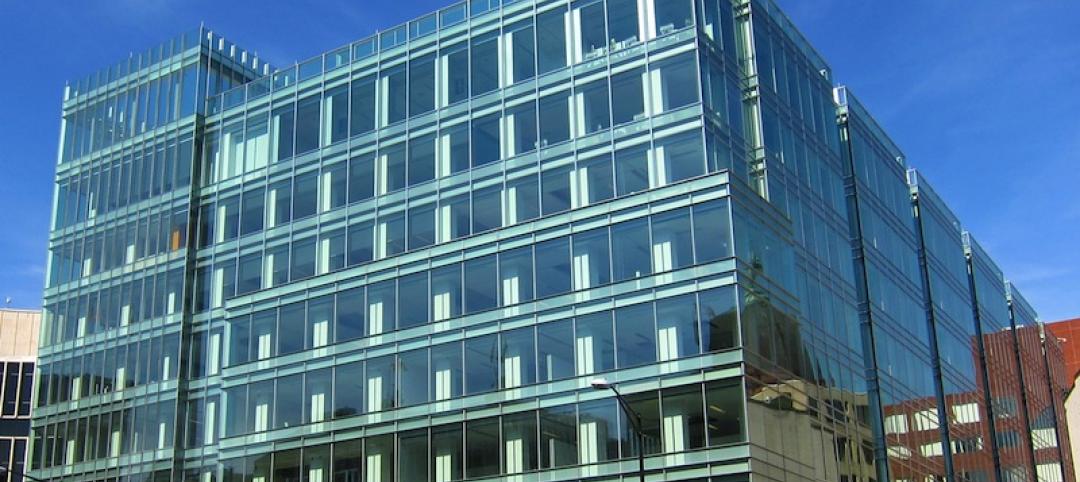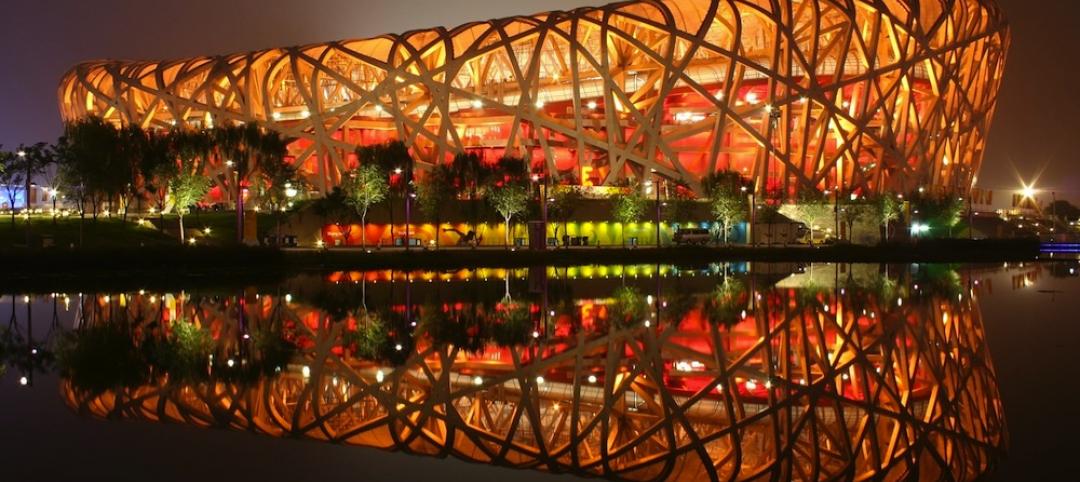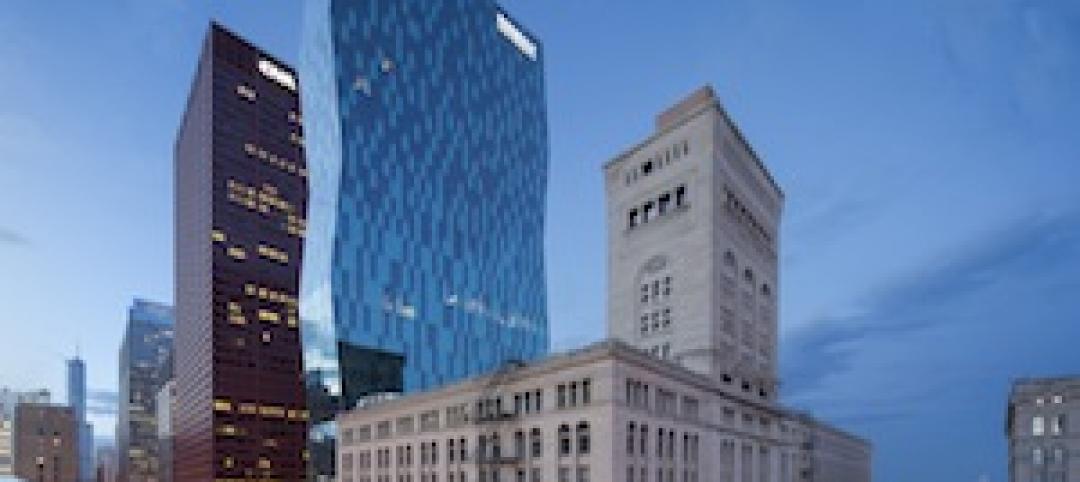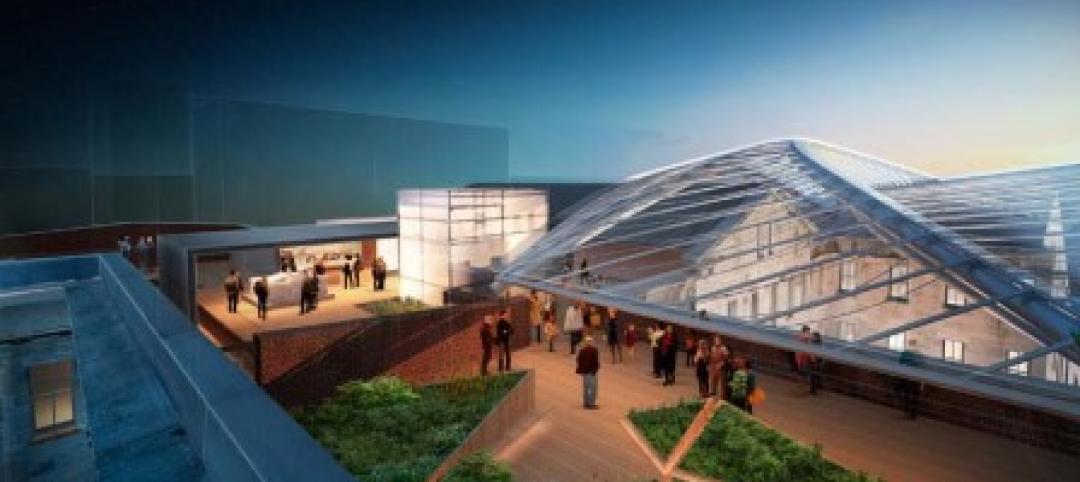Bjarke Ingels Group (BIG), in partnership with Varde Museums and Tinker Imagineers, has transformed and expanded a historic German World War II bunker into a 2,800-sm (30,138-sf) cultural complex called TIRPITZ, embedded into the protected shoreline of Blåvand along Denmark’s western coast.
The facility, which opened earlier this month, expects to attract 100,000 visitors annually. It is designed as a subtle counterpoint to the stark construction of the original artillery fortress.
The complex appears at the intersection between a series of landscape cuts. Its exterior paths cut into the dunes, and descend into a central clearing that brings daylight and air into the complex.
Six-meter-tall glass panels face an outdoor central courtyard that provides visitors with access into three permanent and one temporary underground galleries, designed by Tinker Imagineers.
These include “Army of Concrete,” which recounts human stories against the backdrop of Hitler’s massive defense project, the Atlantic Wall, of which this bunker was a component. “Gold of West Coast” purports to be Western Europe’s most comprehensive exhibit of amber, presented in a forest-like setting complete with recreations of 40-million-year-old trees weeping resin. And “West Coast Stories” re-enacts 100,000 years west coast history, and turns into a nighttime 4D theater twice an hour.
The walls of the exhibition rooms are made of concrete that was cast onsite. They support roof decks—engineered by the Swiss firm Lüchinger+Meyer—that cantilever out by 36 meters. The largest roof deck weighs nearly 1.1 tons.
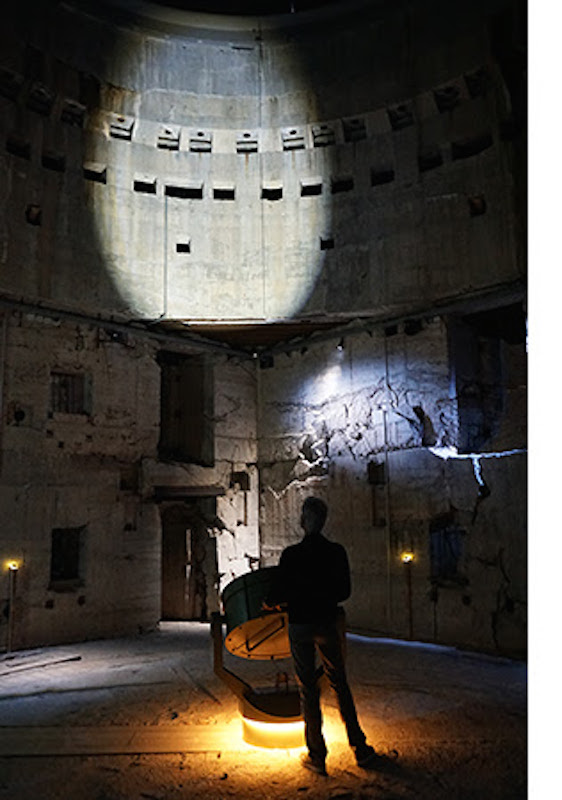
Visitors can access the inside of the bunker through a tunnel that connects it to the underground gallery space. Image: Erik Bar
From the sunken galleries, visitors access the bunker through a tunnel. In the dark, they can play with light and shadowing that reveal how the bunker once functioned.
“TIRPITZ is a unique opportunity to combine nature and culrture in a spectacular fashion,” says Erik Bär, Tinker Imagineers’ Partner and Director.
The Building Team included AKT, Kloosterboer Décor, BIG IDEAS, Fundendt, COWI, Svend Old Hansen, Gade & Mortenson Akustik, Bach Landskap, Ingeniøgruppen syd, Kjæhr & Trillingsguuard, and Pelcom.
TIRPITZ bunker in Denmark began construction in 1944 as part of Hitler’s Atlantic Wall defenses that stretched from Nordkapp, Norway, to the Pyrenees. It was meant to protect the sea route to Esberj harbor. The war ended before the bunker was completed, and it was converted into a small museum.
Seventy years later, construction of the TIRPITZ cultural center commenced. Its financiers include A.P. Møller and Chastine Mc-Kinney Møller Foundation, Nordea Foundation, Augustinus Foundation, and Varde Municipality.
Related Stories
| Aug 26, 2013
What you missed last week: Architecture billings up again; record year for hotel renovations; nation's most expensive real estate markets
BD+C's roundup of the top construction market news for the week of August 18 includes the latest architecture billings index from AIA and a BOMA study on the nation's most and least expensive commercial real estate markets.
| Aug 22, 2013
Sports Facility Report [2013 Giants 300 Report]
Building Design+Construction's rankings of the nation's largest sports facility design and construction firms, as reported in the 2013 Giants 300 Report.
| Aug 22, 2013
Energy-efficient glazing technology [AIA Course]
This course discuses the latest technological advances in glazing, which make possible ever more efficient enclosures with ever greater glazed area.
| Aug 22, 2013
6 visionary strategies for local government projects
Civic projects in Boston, Las Vegas, Austin, and suburban Atlanta show that a ‘big vision’ can also be a spur to neighborhood revitalization. Here are six visionary strategies for local government projects.
| Aug 14, 2013
Green Building Report [2013 Giants 300 Report]
Building Design+Construction's rankings of the nation's largest green design and construction firms.
| Jul 29, 2013
2013 Giants 300 Report
The editors of Building Design+Construction magazine present the findings of the annual Giants 300 Report, which ranks the leading firms in the AEC industry.
| Jul 26, 2013
How biomimicry inspired the design of the San Francisco Museum at the Mint
When the city was founded in the 19th century, the San Francisco Bay’s edge and marshland area were just a few hundred feet from where the historic Old Mint building sits today. HOK's design team suggested a design idea that incorporates lessons from the local biome while creating new ways to collect and store water.
| Jul 22, 2013
Cultural Facility Report [2013 Giants 300 Report]
Building Design+Construction's rankings of design and construction firms with the most revenue from cultural facility projects, as reported in the 2013 Giants 300 Report.
| Jul 19, 2013
Reconstruction Sector Construction Firms [2013 Giants 300 Report]
Structure Tone, DPR, Gilbane top Building Design+Construction's 2013 ranking of the largest reconstruction contractor and construction management firms in the U.S.
| Jul 19, 2013
Reconstruction Sector Engineering Firms [2013 Giants 300 Report]
URS, STV, Wiss Janney Elstner top Building Design+Construction's 2013 ranking of the largest reconstruction engineering and engineering/architecture firms in the U.S.


